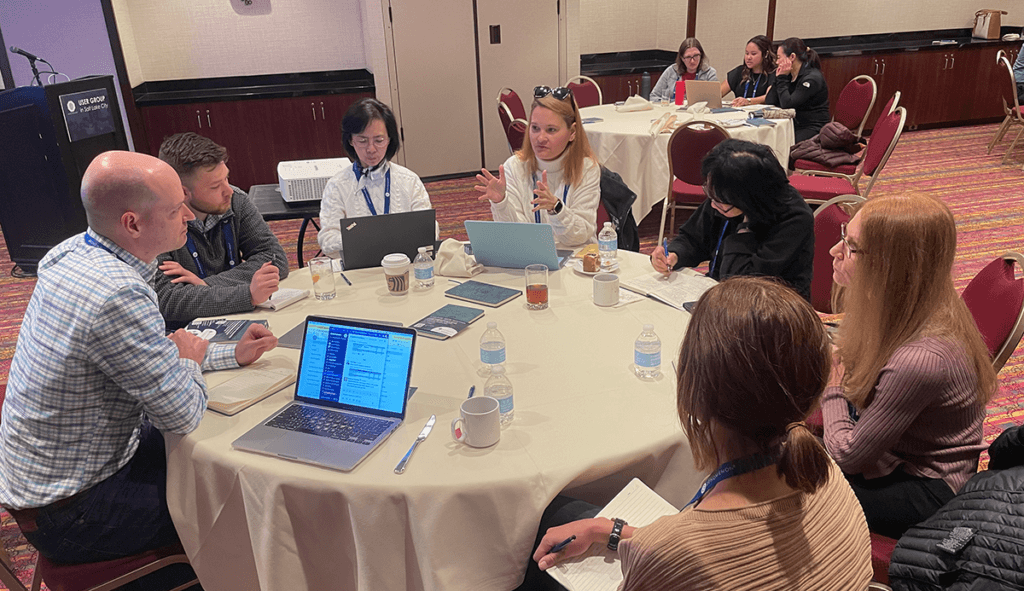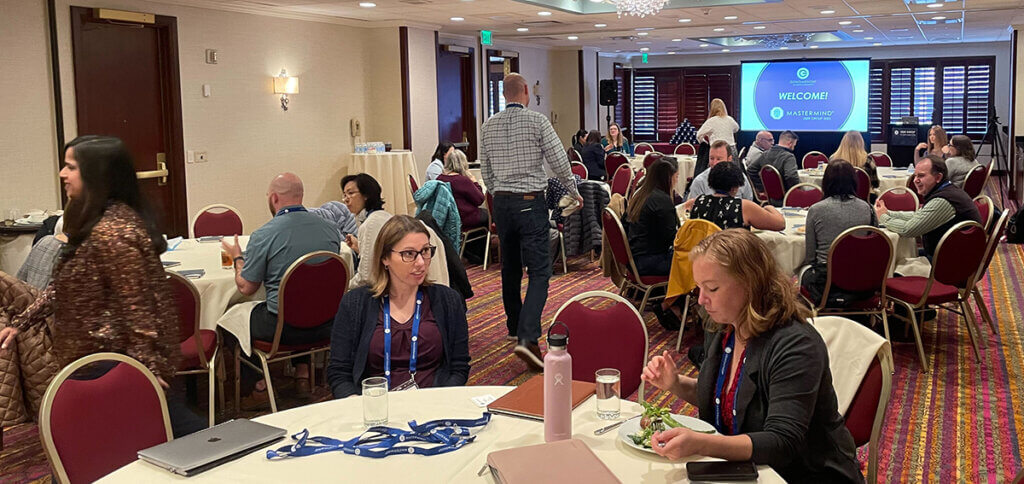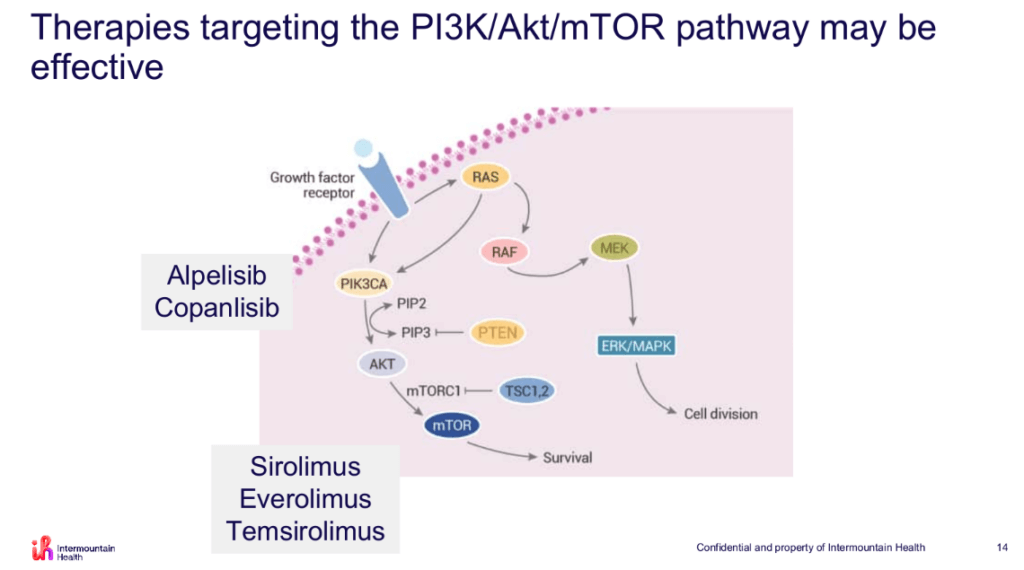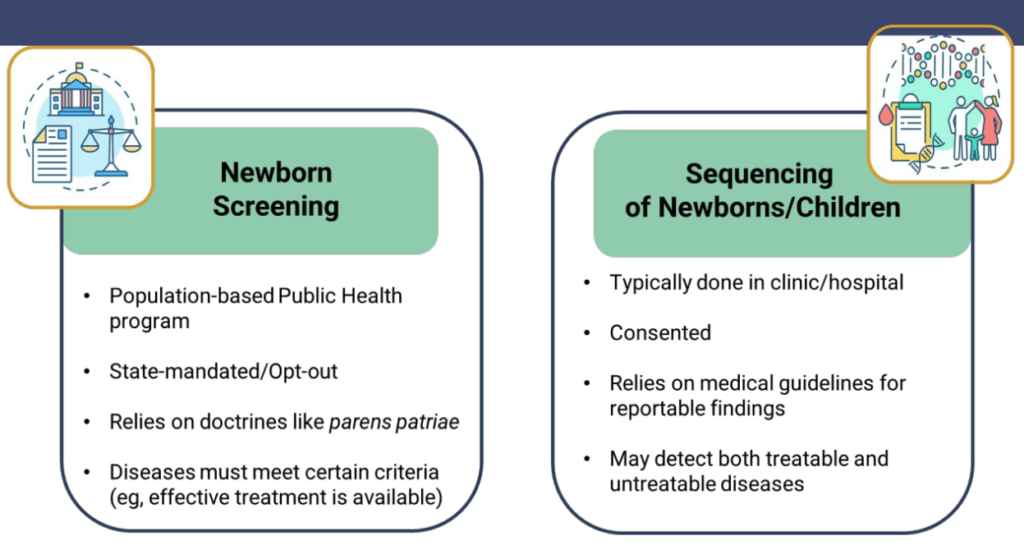Last week, the Genomenon team hosted its inaugural User Group Meeting in Salt Lake City. For us, this highly anticipated gathering of Mastermind users was truly special as it marked the beginning of an exciting new tradition of learning and collaboration.
PIK3R1 Mutations in Endometrial Cancer

It was exciting to hear how institutions like Intermountain Health are providing their oncologists with recommendations for potential off-label therapies based on a patient’s molecular testing results. Natalie went on to share that in fact, clinical trials for Copanlisib and Ipatasertib are currently recruiting patients with PIK3R1 mutations.
Classification Tools for Splicing Variants
 Our next speaker was Randi Rawson, PhD, of Myriad Genetics, who presented on splicing variants. She discussed an approach of integrating multiple methods to analyze these kinds of variants, which combines RNA analysis, computational predictions, clinical data, and literature evidence together for a comprehensive classification strategy.
Our next speaker was Randi Rawson, PhD, of Myriad Genetics, who presented on splicing variants. She discussed an approach of integrating multiple methods to analyze these kinds of variants, which combines RNA analysis, computational predictions, clinical data, and literature evidence together for a comprehensive classification strategy.
She shared an example of a not-so-obvious splice variant with limited functional evidence in the literature to demonstrate pathogenicity. In cases like this, Randi demonstrated, RNA analysis is a key component to determine how much full-length transcript is produced by a mutant allele. Combining that information with clinical evidence identified via Mastermind led to the classification of an otherwise VUS to a suspected deleterious variant.
High-Throughput Genomic Evidence for Newborn Screening
 Rounding out the speaker presentations was Amy Gaviglio of Connectics Consulting, who made a case for newborn screening and the subsequent need for high-throughput genomic evidence. She helped us understand the differences between newborn screening and newborn sequencing, which are often conflated but fundamentally very different.
Rounding out the speaker presentations was Amy Gaviglio of Connectics Consulting, who made a case for newborn screening and the subsequent need for high-throughput genomic evidence. She helped us understand the differences between newborn screening and newborn sequencing, which are often conflated but fundamentally very different.
Amy made us excited and optimistic about the future for a national newborn screening program and variant platform, which will enable state programs to analyze and collaborate on cases while maintaining rapid turnaround times.
Mastermind Round-Table Discussions
After the presentations, the Mastermind Team held round table discussions with the attendees. We discussed several different topics such as our Disease- Specific Curated Content, getting started with Mastermind for new users, and specific use cases involving use of the API, somatic curation, and CNV curation.
The discussions were a healthy blend of Mastermind refresher training, discussions around new and existing features. We also had the opportunity for our users to give detailed feedback about the Mastermind tool. Meeting with our users is crucial to the continual improvement of Mastermind.

We are so very thankful to our three wonderful speakers and all who attended our first User Group Meeting! It’s amazing to watch the Mastermind community grow, and there’s something really special about events that bring that community together in person.
We look forward to seeing you at future User Group Meetings – stay tuned for details on our next event in Washington DC this November!
Don’t have a Mastermind account? Sign up today!


